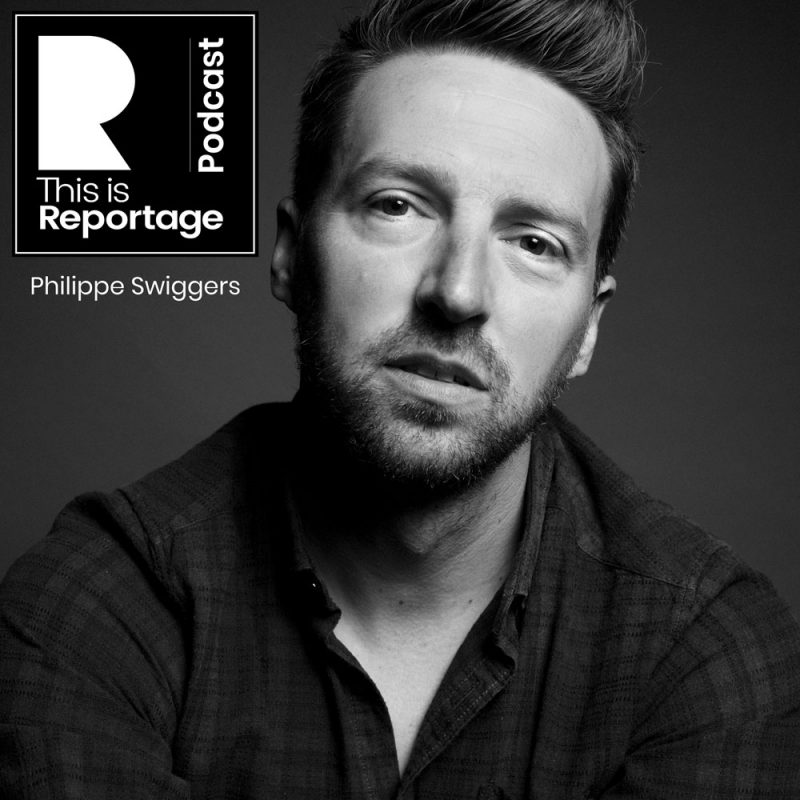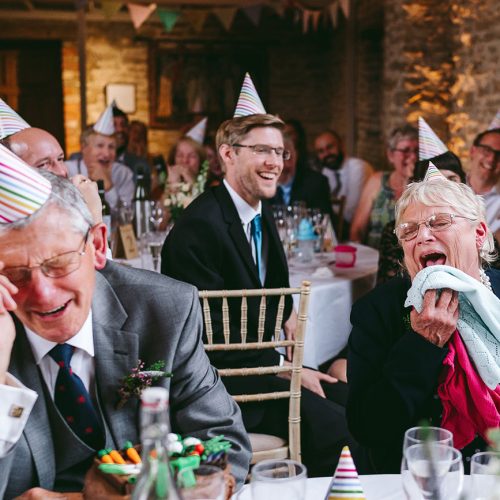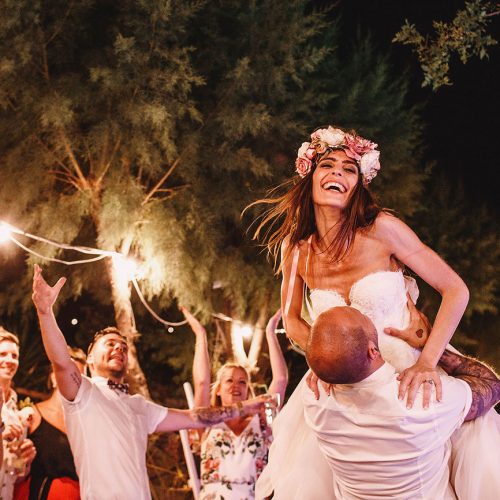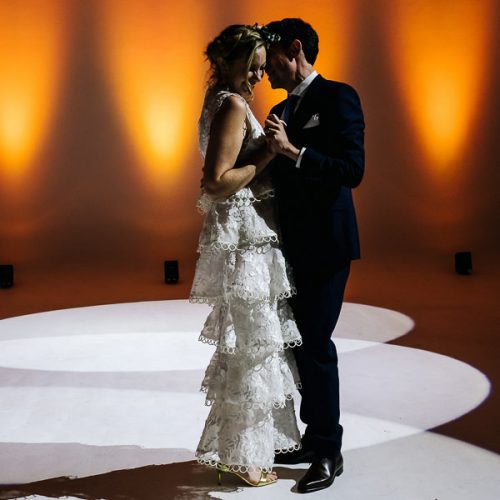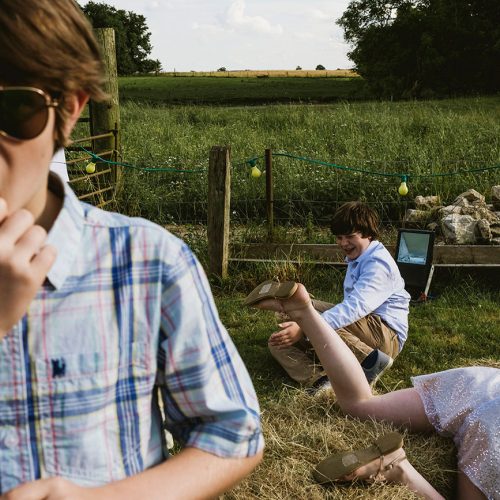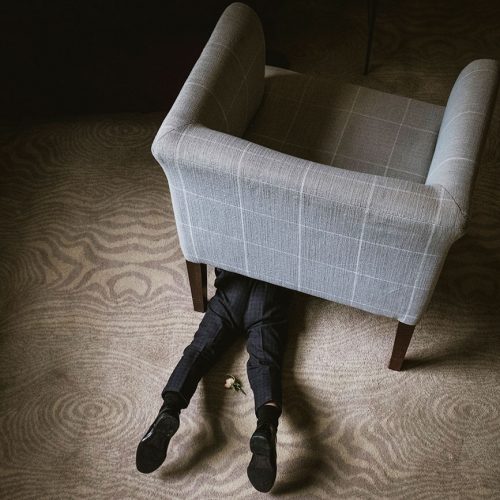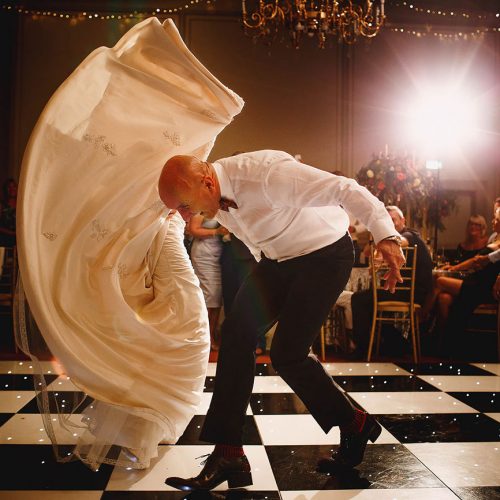Podcast Episode 11: This is Philippe Swiggers
So excited to be bringing you the fantastic Philippe Swiggers for Episode 11 of the Podcast! Hailing from Belgium, winner of no less than 15 TiR Awards (he’s fifth overall, in terms of Lifetime Awards), Philippe is a brilliant photographer and has so much to share, including:
the number of weddings he shoots per year, what he gets up to in the quiet season, the importance of getting someone to photograph his own family, seeing what certain images mean to him and how that helps his own photography, his love for teaching, how he second shot to get into the industry, how he still gets nervous before every wedding, being an introvert in the extrovert world of weddings, the importance of being himself, family and what makes him happy, what success means for him, advice for people who have been shooting for some time but are not happy with their current work, his personal project on social workers which became a book and exhibition, how specifically not thinking with social media in mind helped him, building trust, what he’s awful at, his tips (as a previous judge and winner of five Story Awards himself) for submitting to the Story Awards, how you should never stop believing in your own images and should re-submit what you believe in, photographing Steven Defour’s wedding as a second shooter, the Mind the Moment Collective that he’s part of, why you need to have passion to teach, what skills wedding photographers should have, and more…
You can listen to Philippe’s interview in all our usual ways: iTunes, Spotify, Google Podcasts and YouTube. You can also listen within this post, where there’s also a full transcript.
If you enjoyed it, it would be massively helpful if you could leave us a little review over on iTunes – it’ll help the episodes get more visibility, and we really think these people deserve to be listened to by as many ears as possible!
Alan Law: Hey Philippe, how are you doing?
Philippe Swiggers: Hey Alan, I’m fine, how are you?
Alan Law: I’m really good thanks, yeah, really good. Thanks for joining all the way from Belgium, you’re in, aren’t you?
Philippe Swiggers: Yeah, I’m in Belgium. I love to, love to join this talk with you.
Alan Law: It’s an honor to have you with us, it really is, man.
Philippe Swiggers: Oh, it’s my honor.
Alan Law: And how’s your wedding season been? Have you got many left?
Philippe Swiggers: I just have one left in December. And the rest was quite good. I had a good year, I had great couples, lovely weddings. Yeah, it was good.
Alan Law: That’s cool, that’s cool. How many do you shoot a year?
Philippe Swiggers: I think this year it’s about 18.
Alan Law: That’s a nice-
Philippe Swiggers: Yeah, for me that’s enough. I end up mostly like 18 or maybe 20. And that’s okay. I don’t have the ambition to shoot 30 weddings or, I think 20 is fine for me, yeah.
Alan Law: Yeah, oh that’s a good number. I couldn’t… 30, some photographers do 50, 60. Someone at Nine Dots I met does regularly over a hundred a year.
Philippe Swiggers: Oh my God, it’s not for me. No, I’ve never done it and no, I’m fine. 20, and that’s good for me.
Alan Law: Yeah, I don’t have the energy to shoot that amount I think. A hundred would be a lot. Respect for him for doing that, which is awesome.
Philippe Swiggers: A lot of respect, a lot of respect, yeah. I think for me, 20 is… sometimes I need some weeks off to refuel, I don’t know, my brain or my mind to stay creative. I think what’s the most important reason, I think, yeah.
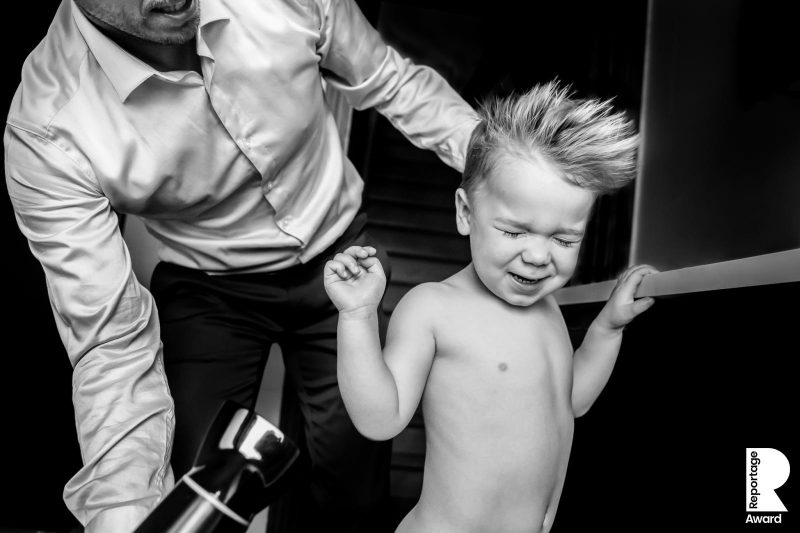
Alan Law: Oh, totally. And talking about quiet times, what do you do in the low season? These winter months now, what do you do?
Philippe Swiggers: Family. I love to spend time with my two kids and my wife. I can enjoy just the little things. On Saturday having breakfast together instead of rushing out and going out for a wedding shoot. No, just Saturdays are awesome. And I try to do my me time in the weekend right now, so I try to ride a bike when I can.
Alan Law: Oh, cool.
Philippe Swiggers: Just relax and try to read a lot when I have my off season, to just refuel.
Alan Law: Yeah, it’s so important, isn’t it? You mentioned your family there. You do your own family photography as well, don’t you? But I also, I read that I think every year you get someone else to photograph you and your family, so you’re actually in the photos?
Philippe Swiggers: Yeah, I try to, I try to. I think the first time was my good friend Yves, you know Yves Schepers, that shot my family? And ever since that moment I decided to try to have a photographer over every year to do a day in the life. And I love it, because I learn so much about having my own family shot. It’s good to see how other people see stuff, and it’s even more important to see what certain images mean to you.
Alan Law: Oh, okay.
Philippe Swiggers: I noticed that the most important images for me are not the most cool random shots or beautiful light or awesome composition, but the little moments that show who my family really is. So that’s what I want to do in my photography too.
Alan Law: Oh, that’s cool. That’s really cool. And I guess just being in the photos as well is a big deal, because I’m never in any of my family photos, I think.
Philippe Swiggers: Ah you should, you should. You have family too?
Alan Law: Yes, yes. So I’ve got… I didn’t forget then, I just couldn’t talk. I’ve got a wife and two kids, yeah, a boy and a girl. We’ve never been photographed by someone else, I should do that, I think.
Philippe Swiggers: Yeah, you should.
Alan Law: You should come over. Come over to the UK.
Philippe Swiggers: Oh maybe, yeah. I would love to, I would love to.
Alan Law: Well you’re very welcome any time to come down.
Philippe Swiggers: Okay.
Alan Law: So you used to be a teacher, didn’t you, I think?
Philippe Swiggers: Yeah, yeah.
Alan Law: Well was that what you were doing just before getting into weddings? What was it like being a teacher?
Philippe Swiggers: Yeah, it’s was great. I’ve been a teacher for 15 years. I’ve been a teacher in elementary school, just kids from six to 12, and yeah, it was great. I loved being a teacher, I still love being a teacher, but at a certain point I got into photography again, and the combination of the two was too much, and I had to make a choice. And obviously the choice at that point was photography.
Alan Law: Right.
Philippe Swiggers: But yeah, I still love teaching, so I try to make a good combination of shooting weddings, shooting families, personal work and some coachings or workshops that we give here in Belgium.
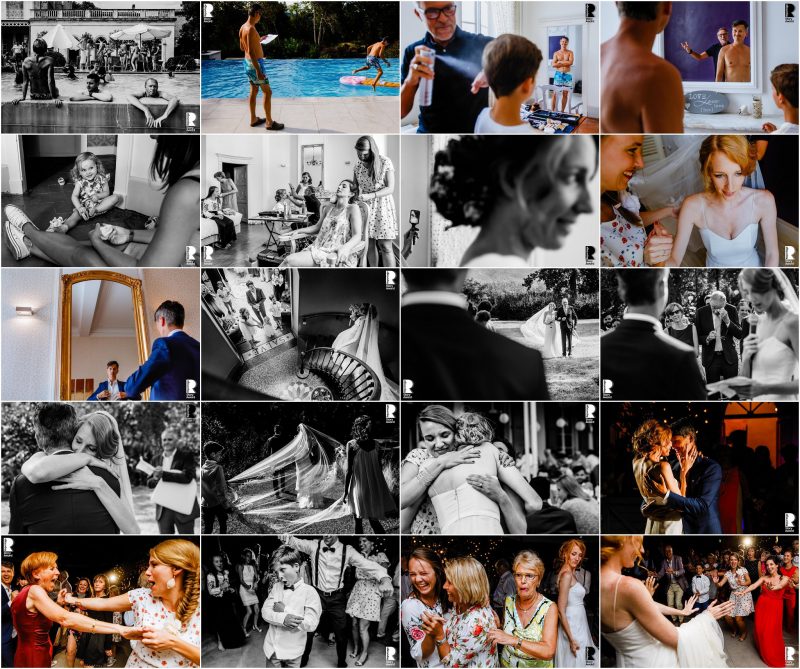
Alan Law: Oh cool, okay. And so how did you get to do your very first wedding? Can you take us back to how you got into it, and your very first paid wedding?
Philippe Swiggers: I think I got into it like maybe everyone. Some people in the neighborhood that were looking for a wedding photographer, and they just asked me, and I think I shot it for peanuts, but I mainly got into the wedding industry by second shooting.
Alan Law: Okay.
Philippe Swiggers: With another photographer, a famous photographer at that time, or wedding photographer at the time in Belgium. He doesn’t shoot weddings anymore, but-
Alan Law: Oh, okay.
Philippe Swiggers: I learned a lot, with shooting with him, and seeing how he handled stuff, and yeah.
Alan Law: Cool, and did you shoot with just that one photographer, or did you shoot with many others, or was it mainly just that one?
Philippe Swiggers: No, just one, because it was like every wedding, he only went out shooting weddings with two photographers, and I was his second photographer. And so I stopped shooting weddings with him when I got too much weddings of my own. So that’s where it stopped, so he’s working with somebody else now.
Alan Law: Okay, cool.
Philippe Swiggers: Yeah, I never second shot any other weddings after that, I think.
Alan Law: Well you were too busy with your own weddings.
Philippe Swiggers: Yeah, I guess so. I’m telling this to myself every year. “I’m going to second shoot a wedding with someone.” But there’s just no time. When I’m shooting 20 weddings, the free weekends I want to spend with the family and do other stuff, yeah.
Alan Law: Yeah I know, I totally get that. And for your very first wedding then, when it was you with the lead shooter, how were you feeling then? Were you confident because you’d done all that second shooting, or were you nervous? How did it go?
Philippe Swiggers: Oh yeah, I’m always nervous. I don’t remember that specific wedding, but I must have been extremely nervous. I still get nervous on every wedding. Not when I start shooting, but the road to the wedding. Once I start my photography it’s fine, but I think before I get into the room I’m always nervous. I’m doing this for 12 years right now and I’m still a little bit nervous for every wedding, so.
Alan Law: Oh, I totally relate to that, I’m still nervous. On the way to every wedding I always have to stop and have a little nervous wee. Always.
Philippe Swiggers: I don’t stop, but I’m nervous. And then just when the door opens, and the dad, mostly the dad of the bride opens the door, and it’s gone. It’s just the road there.
Alan Law: Do you think, do you get nervous when you talk as well, at conferences and things, and workshops?
Philippe Swiggers: Well, I think it depends. I was really nervous the first time I talked at a conference. I think it was the Masters conference or seminar last year. Oh yeah, I was extremely nervous because, I don’t know why. Probably because I doubted myself, or I don’t know. But once I’m on the stage I feel quite comfortable, actually. Yeah.
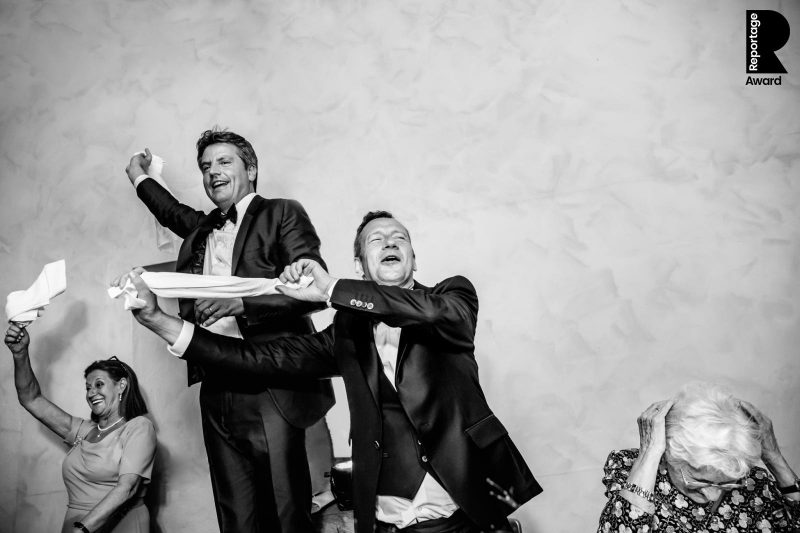
Alan Law: Well that’s cool, that’s very cool. And I think you’ve spoken about being an introvert, haven’t you? In such an extrovert world that is weddings.
Philippe Swiggers: Yeah.
Alan Law: Can you tell us a bit more about that?
Philippe Swiggers: Yeah well it’s kind of strange, because I turned 40 this last year, and it’s really strange. I just found out at this age that I’m an introvert. I was like a shock. I actually didn’t realize it, but I realized it in a session I had with Susanna, Susanna Barbera. She’s awesome, but the way. She helped me with my talk and it was awesome. And after our first session we found out actually that I’m an introvert. That I’m actually so good in hiding this introvert. I just learned throughout the years to hide this introvert guy because yeah, we live in an extrovert world. We have to be social. People expect us to party along, to talk to people, and I think I did a good job in hiding it, and I just realized that hey man, I’m kind of an introvert. I need some time to be on my own, and not talk to people. And yeah. It opened up my eyes.
Alan Law: And it’s strange, though, isn’t it, because weddings are such a… you feel pressure I think, maybe to be a bit more extroverted at a wedding. It’s very… people are around partying, and it’s got quite full-on, so how do you find it being an introvert? How do you cope with that?
Philippe Swiggers: I think for me it’s extremely important to make a good connection with my couple before the wedding. I need to gain their trust. I need to talk to them. I’m meeting them two times at least before a wedding.
Alan Law: Okay, cool.
Philippe Swiggers: Like for me, the introvert is getting less introvert when I’m feeling okay with people, when the first… the hardest part is the first contact. When I arrive for example at conferences, it’s like, “Oh my God.” Talking to new people is hard for me. So I make sure I know my couples before, and for the rest of the day I try to be just myself. But no, the introvert helps me too. I don’t like to be in the middle or the center of the attention. I try to document a wedding the way I see it. I don’t talk a lot to people, I just make them feel comfortable in my way, I think.
Alan Law: No, that’s cool, and people have different approaches, don’t they? And I’m like you, when I get to a wedding I’m friendly and say hello, but I virtually start no conversations, me personally. I’m just very quiet and I just want people to ignore me. But there are other photographers who like the banter, and chat with everyone. It’s different for everyone, isn’t it?
Philippe Swiggers: Yeah, it’s different for everyone, and that’s a good thing. You just have to be yourself, and for me, the most important thing is making feel people at ease, and I don’t think you have to talk a lot to make people feel okay, or make people feel okay with the camera. You can do it in another way. For everyone, of course. People who are extremely extrovert, they have a lot of advantages, and we have them, or I have them as an introvert too, so yeah.
Alan Law: Yeah, it’s all good, isn’t it? But the world’s big enough for both types of verts. It’s all good.
Philippe Swiggers: Yeah.
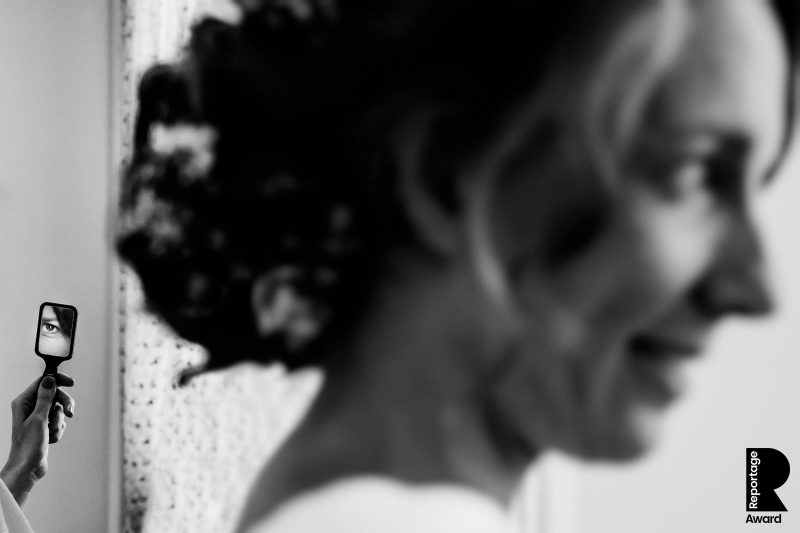
Alan Law: Okay, cool. Let’s change tack slightly. So I’d like you to… what’s the first thing that comes to your mind when I ask what makes you happy?
Philippe Swiggers: I think that’s easy. I think the first thing that makes me happy is when I think about my kids. My son and my daughter. The little moments in the morning when they wake up and I go to them, to hug them or to cuddle them, and wake them up. Or the same thing in the evening when they go to sleep, and we have this little hug before they go to sleep. Little things. So it’s great, my daughter, she’s saying the same thing every night when she goes to bed, and it’s so cute. She’s saying, “I love you to the moon and back forever.” But in Flemish, so it’s awesome. I recorded it. I recorded it once, so when she gets married, I’m going to play it on her wedding or something, I don’t know.
Alan Law: Aww, that’s very cute.
Philippe Swiggers: It’s really cute. It’s little moments that make me really happy, yeah.
Alan Law: Oh, that’s lovely, man. Because I’ve got a daughter as well, do you think… when you’re shooting weddings, do you think about the future, and maybe your own daughter’s wedding?
Philippe Swiggers: Oh, my own daughter’s wedding. No, I try not to think about that yet.
Alan Law: It’s a long way off.
Philippe Swiggers: No, she’s only seven so I hope, I hope to keep her a little bit small as long as I can. No, I’m not thinking about their wedding. I’m thinking about their future though, but not specifically their wedding. I don’t want to put up certain expectations, so what if they don’t get married? They don’t want to get married. It’s fine.
Alan Law: Yeah. Well my daughter’s seven as well, so same age, that’s cool.
Philippe Swiggers: Great age, great age.
Alan Law: Yeah, it is, isn’t it? Super cute, super cute. But it’s funny, isn’t it? If they get married there’s going to be quite a lot of pressure on us for a good speech, because we’ve seen a lot of speeches in our time.
Philippe Swiggers: Yeah. That’s a good… I’m going to think about that one.
Alan Law: You’ve got a lot of time to prepare.
Philippe Swiggers: About the speech on my daughter’s wedding. Yeah, I’ve got some time to prepare, so yeah. No, I’m not thinking about that yet.
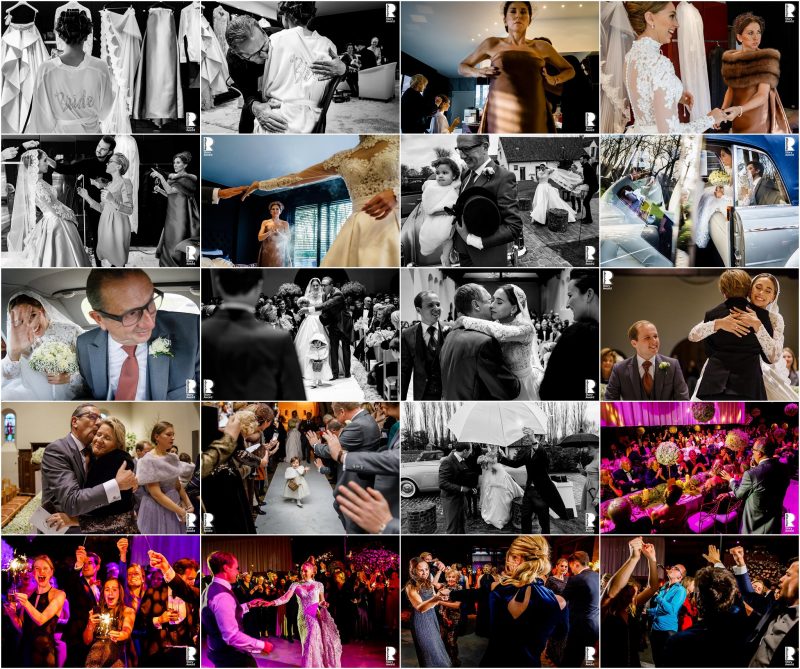
Alan Law: No, cool, a long way off, long way off. Cool. What does it mean to be successful for you?
Philippe Swiggers: I think success for me, it’s a hard one, because it thought about that many times. I think success is about balance. I think balance, and three important things. It’s not like work/life balance, it’s more like when you get these three things in the right order and in balance, I think that means you’re a successful person. And for me these three things are your business, of course. When you have a good business that you love, like your work, you love to go to your work and you enjoy spending time at your work like I do, and you make a good living out of that to support your family. That’s the first thing.
Philippe Swiggers: And I think second thing is finding a good balance and doing that work together with your family, with your family life. For instance, for me it means doing 20 weddings, and the rest of the weekends are family time. And the third thing is me time. I need some time for myself to just spend time for me. To be on my bike, or just to do stuff just for me. I think balancing those three things means success for me, I think. Yeah.
Alan Law: That’s great, that’s a brilliant answer, man. Totally agree, that’s great.
Philippe Swiggers: Yeah, thank you.
Alan Law: And say if you had 24 hours totally to yourself, and money was no object, what would you do in that 24 hours?
Philippe Swiggers: Oh man, that’s a hard one. I think again, family would be important. I think spending the best time with my family in those 24 hours. The first thing that pops up for me is take my kids, take the car, drive to Paris and go to Disney World or something. Something like that, I don’t know, and just be together.
Alan Law: That sounds lovely, man. That’s really nice. That is really nice.
Philippe Swiggers: Yeah, I’ve never been there, and we’ve been thinking about going there. I don’t know if it’s worth it but yeah, I think the kids would love it, so yeah.
Alan Law: Oh they would. I’ve never been as well and my daughter would absolutely love it. So you’ve got one daughter and what else?
Philippe Swiggers: And one son, he’s nine.
Alan Law: Oh, the same as me, oh, he’s nine. Oh, okay. My son’s five, almost five. Yeah, they’d love Disneyland, you should go. Do it.
Philippe Swiggers: Yeah, yeah. We’ll do it.
Alan Law: I guess it’s quite easy for you to get to Paris as well, isn’t it?
Philippe Swiggers: Yeah, I think it would be two-hour, three-hour drive or something.
Alan Law: Oh cool, yeah easy. Do that.
Philippe Swiggers: Or probably take the train or something, would be easier, I don’t now.
Alan Law: Oh yeah, I think from England you can get a specific Disney Euro tunnel, which is all Disney themed and stuff.
Philippe Swiggers: Yeah, probably.
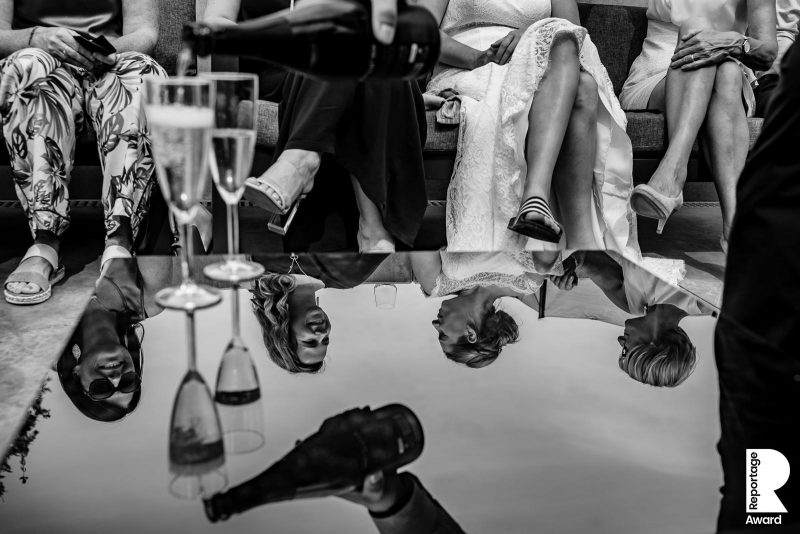
Alan Law: So let’s get back to photography. What advice would you give for photographers who’ve maybe been shooting for a few years, maybe four or five years, and they don’t feel like their career is advancing the way they want it to. Maybe they feel a bit stagnated, a bit bored of their own work. Do you have any kind of advice for those people?
Philippe Swiggers: I think what I told you before about second shooting, I think second shooting is always a great idea when you’re stuck. You can just shoot for free, and with a free mind, and just do whatever you want, and you can learn from someone who is shooting at a wedding actually as a first shooter. And mainly I think when you’re stuck, and you’re already in the business for a few years, I think doing some personal work is always a good idea.
Alan Law: You just mentioned your personal work there. You’ve done a big project on social workers, haven’t you? I think which you published a book about, and you have an exhibition as well, I think? Can you tell us about that, how that came to happen?
Philippe Swiggers: Yeah, I wanted to do some personal work for years, but like many people I didn’t know what, so I just didn’t do it. But there was some guy who came up to me and he asked me to document social workers in Belgium. So I said yeah, I’m going to do it, so I started, but I didn’t know actually myself what social workers did. So actually it meant that I had to document people who actually didn’t want to be documented.
Alan Law: Oh, wow.
Philippe Swiggers: Like homeless people, or people who are involved with drugs, or young people who have problems with their parents. I don’t know, many things. People who are sick or dementia, or stuff like that.
Alan Law: Wow. That’s great.
Philippe Swiggers: Oh man, I learned so much, and it was hard. It wasn’t easy, because most of the time I thought my images were really bad. But I didn’t care about it because a big thing for me was that I couldn’t post it on social media. And I think that is really important, because today I think we shoot too much about… or how we think we should shoot, because other people are going to like it or are not going to like it, and that was a big eye-opener for me. I just shot it for myself, just how I felt, and it was an eye-opener. I was not nervous to shoot that project, because it was okay. When I did a bad shot in my eyes, or in my point of view, I just went back another day and tried again. And I did work really hard to make the best out of it.
Alan Law: Was it a lot of days of shooting then?
Philippe Swiggers: Yeah, there were a lot of social workers who contacted me that I could follow them for one day, so I had to drive around Belgium and I tried to follow them for several hours a day, for four or five hours, and sometimes it was really interesting, but sometimes there was nothing really to see or shoot, so that was the hard part.
Alan Law: Was it quite upsetting at times? I must have been quite hard, I would have thought.
Philippe Swiggers: It was hard in a way that I had to gain trust every time again. I had a contact with the social workers. I connected with them before, but once I got in the situations, for example homeless, I had to connect with these people too, on the spot not before, and I had to talk to them maybe for an hour before I asked them, “Hey, is it okay to take some pictures?” So I had to work hard so they trusted me.
Alan Law: Okay, yeah. That’s a big deal, and maybe with being an introvert as well, that would be even scarier for me, I think.
Philippe Swiggers: Yeah, well I think it’s the first contact, like I said before. And the first contact was mostly made by the social worker.
Alan Law: Right.
Philippe Swiggers: So I was there, they introduced me. I came along and I listened to their story, and after the introduction was made I asked them if it was okay to shoot, so yeah.
Alan Law: Yeah, that’s cool, man. Do you know if any of your subjects have seen the images, seen the book? Have you had any feedback from that?
Philippe Swiggers: Yeah, yeah some of it. A lot of them have seen the pictures, and mostly they love it, especially the social workers, because the thing was, the social workers are really… they want to protect, they call it their clients, because they don’t want them to be misabused or something, or they were afraid that pictures are going to appear on social media and stuff, but the only place where they are shown right now is in the book that was published, and in the exhibition. So a lot of social workers that I shot were at the opening of the exposition last year and they loved it. Seeing it how… I think the things I hear the most is that they love the integrity of their work.
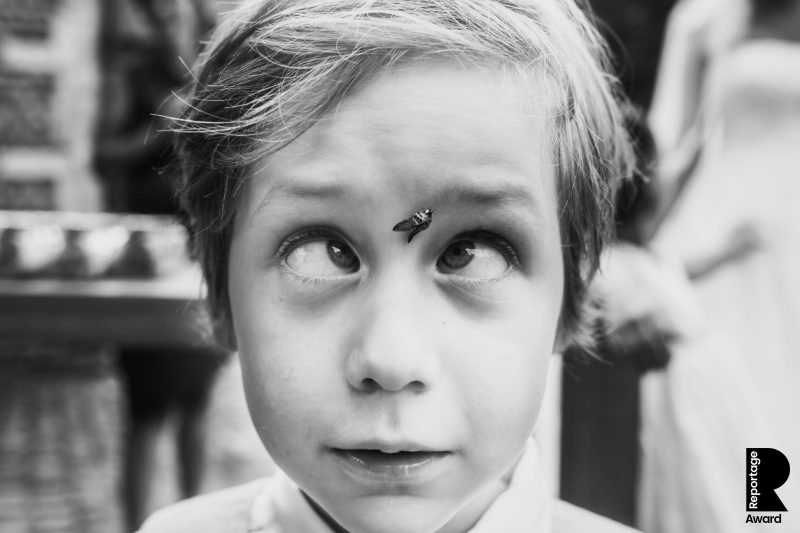
Alan Law: That’s cool. No, that’s great man, that’s awesome. And what was it like seeing your work in an exhibition like that? That must’ve been pretty cool.
Philippe Swiggers: Oh yeah, it’s awesome. It’s so awesome because that’s the thing, in wedding photography we don’t see our images printed enough, I think. When you see your images on your screen, you’ve seen it 10 times again, and you edit it, and you edit it again, and you work hard to get the best out of it, and then you put it away, you put it somewhere in the cloud. But what happens in this thing is that you have it printed, you go to the lab and you see it for the first time, at one meter, at 90 centimeters or something, and yeah, it’s awesome to see this work on the wall. At the end of the project I was tired of looking at my images. You have the same thing when looking at your same wedding pictures again, and then you don’t really love them anymore. You’ve seen them too much. But every time I see them again on a big wall, it’s hot, yeah. It’s like a tick, it’s adrenaline.
Alan Law: Yeah, I bet. It’s cool. I’ve thought about for a while now, I’d like to do an exhibition of This is Reportage images, and have an exhibition that is about the skill and artistry of documentary wedding photography. I think that would be great.
Philippe Swiggers: Yeah, you should. You should. I think it will be good to educate our clients even more about how important real moments and real situations are, yeah.
Alan Law: I’m going to do it. I’m going to do it.
Philippe Swiggers: Do that.
Alan Law: Doing that personal project, do you think it’s had an effect on your wedding work?
Philippe Swiggers: Yeah, definitely. Definitely. Before my personal work, I just thought about other people too much, about what other people or photographers thought about my work, made me insecure. Made me insecure about what should I post on social media? Is this okay? Is this good enough? And doing this personal work made me realize that I don’t have to care about what other people think. I don’t know why, it just… it was liberating in some kind of way.
Alan Law: That’s cool.
Philippe Swiggers: Yeah.
Alan Law: No, that’s cool, man. Awesome. Changing tack again slightly. Can you tell me something that you’re really, really bad at?
Philippe Swiggers: Oh, where I’m awful at. I’m awful at talking.
Alan Law: No you’re not. You’re great.
Philippe Swiggers: No, I think I’m awful and again, the first contact with people, that’s really something that I have to work on. Sometimes I’m so into myself that I cross people on the street and I don’t say hello because I’m just in my introvert zone. It’s not that I don’t want to say anything, it’s just that I’m there, but I’m not there. I’m just doing stuff in my mind and thinking about stuff, and people can just cross me sometimes, and just didn’t even see them. Yeah, I’m awful at that, I think.
Alan Law: But we spoke just before starting this podcast and you were very natural. We’d never spoken or met before, I think that you were very natural, just yes, really easy to talk to, man.
Philippe Swiggers: Yeah, I try to, but again, I get really insecure, and first contact. When I would see you for a first time, I don’t know, when I would come to Nine Dots or something. It would be really hard for me, even after we spoke right now, to come up to you and say, “Hey Alan, how are you?”
Alan Law: Oh really?
Philippe Swiggers: I need people to step up to me, and be like, “Hey Philippe, how are you?” And then okay, it’s okay.
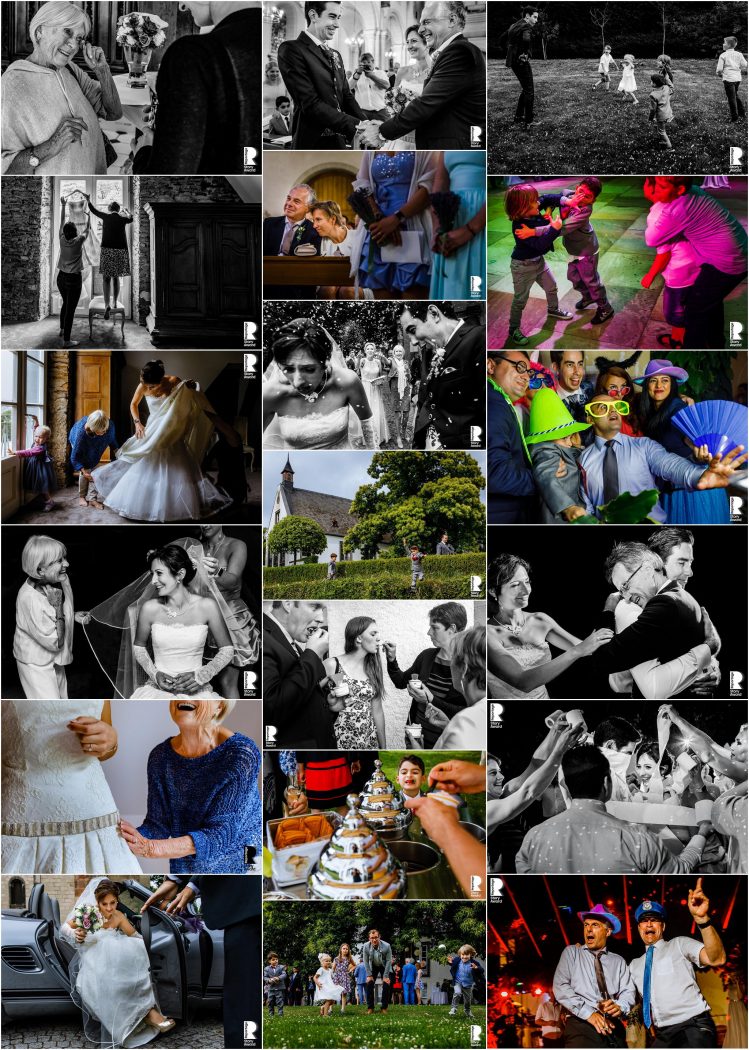
Alan Law: I get that. No, I get that as well, those social anxieties. You very kindly wrote a piece about when you judged for us, and your thoughts and tips, and submitting to the awards, and there’s super advice in there. I urge everyone to read it. I’ll include a link to it in the post on the site. And one of the parts that you wrote about was about our Story Awards, and you’ve won an amazing five Story Awards yourself, which is awesome. Could you talk a little bit here about the Stories in particular, and your tips for people wanting to enter and maybe win a Story Award?
Philippe Swiggers: Yeah, maybe. I got this question from somebody else last week too. So for me I think Story Awards are really important, because I used to shoot for awards, but I don’t shoot for awards any more. But I try to shoot as good as I can for my couple. And shooting as good as I can for my couple means that I deliver them… the first thing I deliver them is a slide show, and the story just needs to be right. The first picture needs to be right. The last picture needs to be a good picture. And I try to, on the actual day, the wedding day, to think about story, to think about what needs this story as a first picture. What needs this story maybe as a last picture.
Philippe Swiggers: And the most important things for me in a story are the in between moments. All the weddings have the same important key moments like the rings, or a kiss, or everything that comes along with a wedding. But I think the most important thing, what actually defines one certain wedding is the in between moments. The people there, and the in between moments. Things that happen on that actual wedding that don’t happen at another wedding. I don’t know. And I think that’s important. I try to think as much as I can in story, that when I get home and I make my slideshow that I don’t miss a single thing in my story, because when I miss something, that sets me up. “Damn, I have to think about that next time.”
Philippe Swiggers: That’s what I do every time, and when I see my slideshow, that’s my product that I have delivered to my clients. I try to look at it and see, okay, am I missing anything? Next time I’m going to do this, or this. That’s how I look at stories.
Alan Law: And when you were judging for us, was there anything specific about certain stories that really put you off, and made you not vote for them?
Philippe Swiggers: No, not really. I just… for me, it’s not the same as judging single pictures, but in stories you have to… when I’m judging a contest, I’m judging just with my feeling, my gut.
Alan Law: Right.
Philippe Swiggers: The first thing has to be something, I have to feel something. That can be like something funny, or emotional, or oh, or wow. Or something like that. I have to feel something, and then when I feel something, the next thing is what I do is, I go and see if the light and the composition and everything is okay, did you make this picture like awards-worthy. But in the story, that’s the same thing. When you look at a story of 15 or 20 images, I need my wows or ohs, or my emotional moments in that story. When you put all the strong… only the emotional stuff only in the last three pictures, I think you should keep it more like, I don’t know. You know what I mean? You have to look at a story and feel the story when you’re looking at it.
Alan Law: Totally, yeah. And you touched upon there, as well, how it is subjective. And one of my favorite bits of your advice was talking about how subjective obviously photography is and judging is, and if you love your images you need to resubmit them again, because you don’t know what’s going to appeal to any judges. I think that’s really great advice.
Philippe Swiggers: Yes definitely, definitely. Never stop believing in your own images, because that’s what I see, even too much in contests. Too much of the same stuff. Put your you in it, your identity, and if you believe in an image, just submit it and submit it again, even for 10 times. I don’t care. That’s the award that mean the most to me, are the pictures that I like the most. Sometimes you win an award with an image that you say, “Okay, this is okay.” But images that you love the most, and you win an award with those, gives you an awesome feeling.
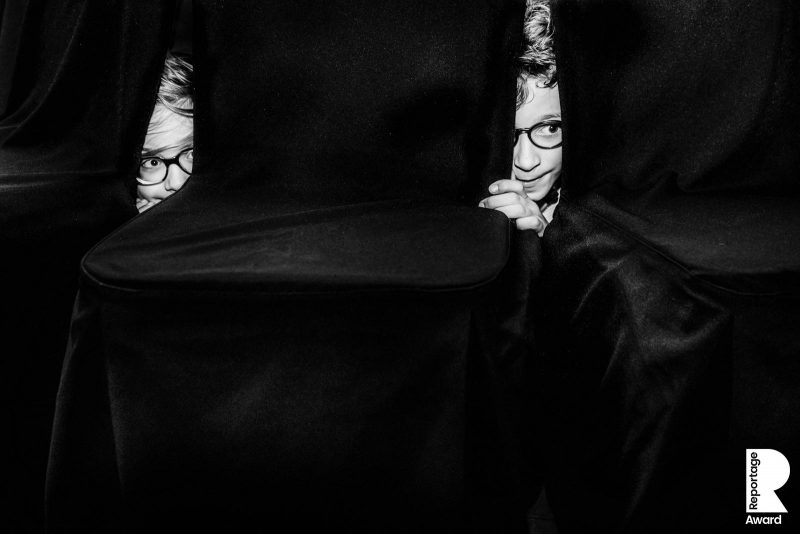
Alan Law: Yeah, that’s true, that’s cool. Cool. Awesome, let’s change tack again, slightly again. Have you ever met or photographed anyone famous?
Philippe Swiggers: Anyone famous? Yeah, actually. As a second shooter of a wedding of this guy where I started out, I shot the wedding of Steven Defour, the football player.
Alan Law: Oh really? Okay, I’m not too much into my football, but that’s cool.
Philippe Swiggers: He played in England. He played at Burnley, actually.
Alan Law: Oh okay, cool.
Philippe Swiggers: He’s back in Belgium again, but yeah. And it was one of my first weddings, and it was funny because I had to shoot him in getting ready, because the first shooter does the bride, and I had to go there. I was extremely nervous because one of my first weddings, and I have to do this one.
Alan Law: Oh, that’s scary.
Philippe Swiggers: And they had a game the day before with the National team, and they lost, big time.
Alan Law: Oh no.
Philippe Swiggers: Yeah. So I was in the door and he opened up, in his football shorts, and yeah, he was a nice guy. We had a good time. He was looking at… I think he was even watching an episode of Columbo. I still remember that.
Alan Law: Oh really? Wow.
Philippe Swiggers: Yeah.
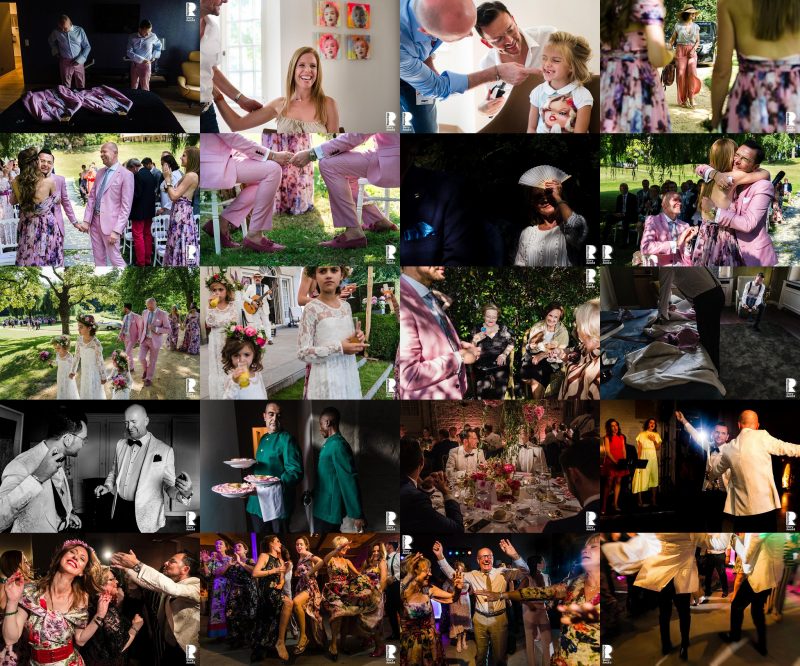
Alan Law: “One more thing”. That’s funny. Oh cool. You are part of the Mind the Moment collective aren’t you? With three other photographers?
Philippe Swiggers: Yeah, we are at four, yeah.
Alan Law: Cool. Can you tell us more about that? How did that come about, and what you do?
Philippe Swiggers: Well yeah. We want to organize our workshops together with Dries Rengle, Nele Watty and Yves Schepers, and we started a collective.
Alan Law: I love the way you say their names, by the way. I could never say their names like that, it’s so cool.
Philippe Swiggers: I try to make a mix of Flemish, English.
Alan Law: It’s great stuff, it’s cool.
Philippe Swiggers: Yeah, no, we have a collective, and I think we at this point, we give workshops, gave workshops for about 120 people right now. Most, not all of them are Belgian or Dutch, and we starting to have a good community. A good community with people that share a lot of information with each other. A lot of people start shooting together. It’s great to see, because that’s the good thing about teaching and doing stuff like that. What we have, I think maybe that’s our strength. We don’t do it just to earn money. Of course we earn some money with it, but we do it because we love it. We love to inspire people, and sometimes we talk to each other and we say, “Hey, have you seen this guy? He’s become so good.” And it’s not because we told stuff, but it gives a great feeling to see people evolve and grow. And yeah, it’s a good thing.
Alan Law: It’s cool. But I can tell from talking to you and meeting Yves as well, the passion that you have for it. And I guess it’s come on from well, your teaching background as well must be handy for doing your own workshops, and the collective?
Philippe Swiggers: Yeah, I guess so. I guess so. Yeah, that helps obviously. Actually it’s not that much different, than teaching children.
Alan Law: Oh really?
Philippe Swiggers: The biggest part in teaching for me has always been, especially with kids was, when they love to come to school… you know a lot of kids don’t like to come to school. But when they love to come to you as a teacher, you have already won for 80% of what you want to teach, because when they feel good and when they start their day and they want to come to school, and say, “Oh, we’re going to school, we love our teacher.” You have them. And it’s the same thing with teaching photographers. When you just do it for the money, it won’t work. It just won’t work. When you’re doing it with passion, I mean you give your people the feeling that you actually care about making them better. It’s always going to work exactly the same. So what we’re doing, that’s what we’re doing naturally. It’s not because we have to, it’s because we want to, yeah.
Alan Law: That’s cool. Man, that’s awesome. That is awesome. I think I’ve got time just for one more question. So other than photographic skill, what skills or attributes do you think wedding photographers should have?
Philippe Swiggers: The photography skills for me is like 20%. And the rest is all what’s inside of you. What’s inside of, or between those ears. What’s holding you back, to get close, for example. Is it because you’re insecure, or is it because you’re an introvert? Or is it… I think a lot of, the most part is your personality. And the hardest part to work on that is to… don’t look at other people. Just try to look at yourself and try to create your own identity in your photography. And that’s hard, because a lot of people, like myself, didn’t know who I am, or who I was. And that’s a hard thing. So I think the most important thing is in between your ears. I think yeah, your mind, and keep your mind fresh and creative, and just do your own stuff.
Alan Law: Yeah, that’s huge, isn’t it? That really is. Do you not look at any other wedding photographers’ work now? Or did you-
Philippe Swiggers: No.
Alan Law: No.
Philippe Swiggers: No, I stopped, because I’m too… I get too quickly influenced by other people, it’s just who I am. So I’m on Instagram. I try to look at, or spend time for my own business on Instagram but I don’t look at other wedding photographers. I just don’t do it. Maybe after 10 or 12 years I’m tired of looking at wedding pictures, maybe? That’s a thing too, but I try not to. I try just do my own thing. What I do is look at… I look at documentary photography, photographers, I don’t know. But not exactly to inspire me, just I try just to be myself and let the inspiration come from my experiences, or from inside.
Alan Law: That’s cool, man. That’s awesome. That’s awesome. Oh man, Philippe, honestly, that was so cool, thanks so much for that. Thanks for your time.
Philippe Swiggers: You’re welcome.
Alan Law: That was so good, so interesting. Loads of great bits of information. I’ll include lots of your great images in the post, and I’ll link to that article you wrote for us about judging as well. I’ll link to your book as well and your personal project.
Philippe Swiggers: Oh great.
Alan Law: And honestly, thank you so much. That was fantastic.
Philippe Swiggers: Thank you, Alan. It was great talking to you.
Alan Law: And hopefully I’ll get to meet you in the flesh sometime.
Philippe Swiggers: Yeah, yeah, we should. We should.
Alan Law: But definitely come up to me and say hello.
Philippe Swiggers: Yeah, will try.
Alan Law: Awesome man, thanks a lot.
Philippe Swiggers: Okay, thanks, bye.
***********************************************************
Thanks so much to Philippe for this fantastic interview! Here are some of the links mentioned in the episode:
Philippe’s Website
Philippe’s TiR Profile
His work on Social Workers
The post he wrote for us about judging for us (great tips here!)
The Mind The Moment Collective
If you enjoyed listening, we’d be so grateful if you could spare a few minutes to leave us a review over on iTunes – every review really helps the Podcast get listened to more and more people, so thank you so much in advance!
Would you like to join us here at TiR? Now is a great time to join, as the deadline for our first Collection of 2020 is still a couple of weeks away (submit by 23:59 GMT on 24th January 2020) – so if you’re interested in possibly getting on our Top 100 list for 2020, you have the best chance by being able to enter all six of our Collections for 2020. See all the benefits of membership and apply to join us over here.
